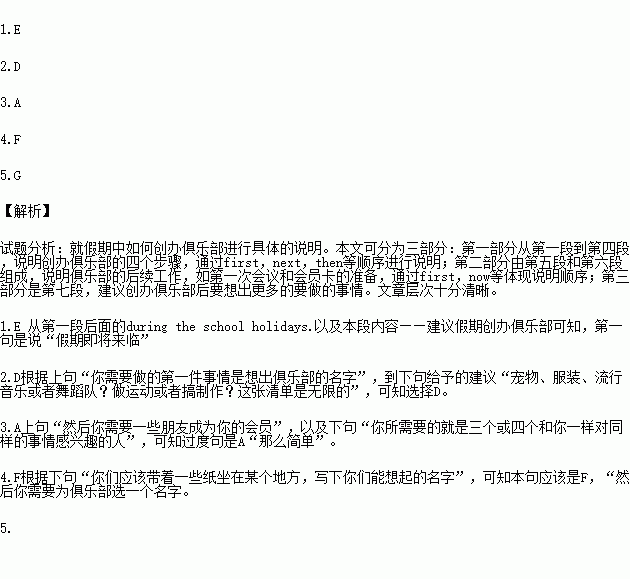题目内容
根据短文内容, 从短文后的选项中选出能填入空白处的最佳选项, 选项中有两项为多余选项。
1. one of the best things you can possibly do is to start you own club. it’s great fun especially if you are the sort of person who feels there’s never anything to do during the school holidays.
the first thing you need to come up with is an idea for your club. 2.pets, clothes, pop music or dancing groups, sports, making things? the list is endless.
next you need some friends to be in your club with you. 3. all you need is three or four other people who are interested in the same thing as you.
4. you should all sit down somewhere together with lots of pieces of paper and write down every name you can think up. that’ll keep you busy for ages.
at your first meeting you should make up a rule book. and the first rule should be no grown-ups or little/big brothers or sisters! the best clubs are always secret!
now you have just about everything you need, except membership cards. these are very important and again you can spend a lot of time making them. 5. why not leave some space for a photo of yourself? that will make the membership card really look like it.
so there you are, get clubbing! once you get started you’ll think of loads of more interesting things to do!
A.that’s easy.
B.enjoy your own club!
C. invite a designer to join you.
D. what are you interested in?
E.some vacation is just around the corner.
F. then you need to pick a name for your club.
G.use a bright thick pen to make a special design.

